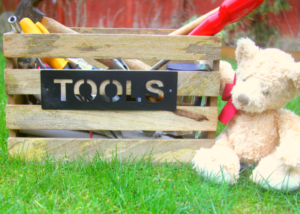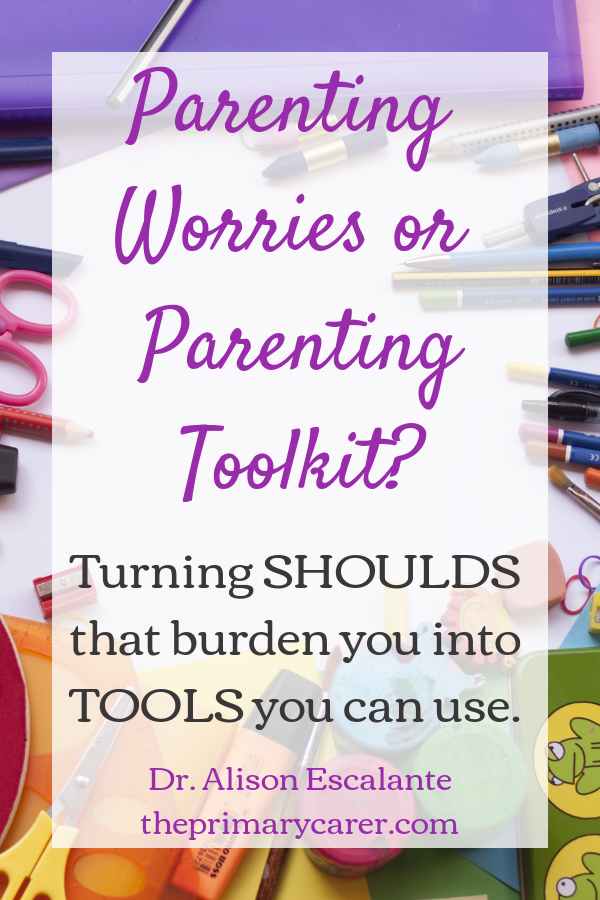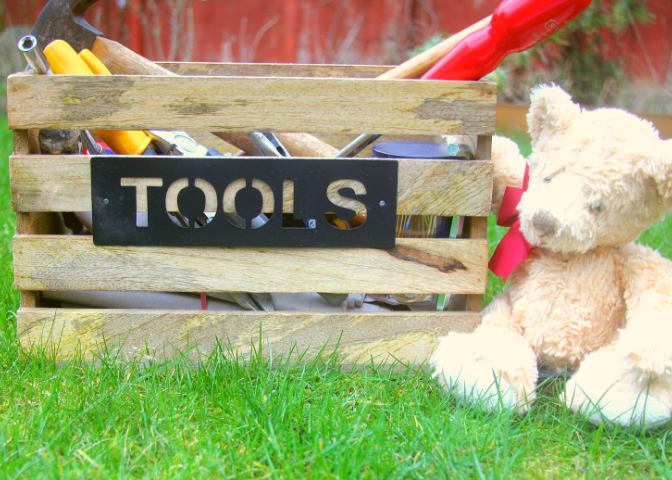Turning The Shoulds That Burden You Into Tools You Can Use.
The ShouldStorm in parenting is the swirling mass of advice and criticism we experience as parents, that drives us to feel anxious and overparent. Sometimes it is the advice itself that’s the problem, because it reinforces the basic ideas that create perfectionism and anxiety. But sometimes it’s not the advice at all. It’s how we hear it, or how we use it. We get to choose: parenting worries or parenting toolkit?
How do you stop helicopter parenting? How do you turn the shoulds into tools that you can use? You create your parenting toolkit. If the advice promotes our kids genuine growth as independent individuals, then it goes in the toolkit. But if the advice involves overparenting and overprotecting, it goes in the trash.
What is the point of parenting anyway? It’s to raise our kids into adults (and enjoy them along the way). It’s just amazing how the parenting ShouldStorm claims we are responsible to protect our kids from everything. Yet that undermines the essential purpose of parenting in the first place. Birds raise their babies to fly. Humans raise children into adult humans.
One of my favorite authors wrote a fabulous book on child brain development. I took it to heart and started to think “I’ve got to do it this way, or a mess them up for life.” I read the passage on the effects certain parenting behaviors have on the brian and I thought, “Oh my gosh, I’m done. That’s it. I’ve done that and I’ve ruined my kids.” This made the book useless to me, because it became a burden of shoulds.
What if instead of anxiously avoiding the ideas that upset me, or applying them in overparenting, I just put that book in my toolkit? It doesn’t get to be a should. It’s a tool, which is very likely what author was after in the first place.
Those parenting articles I read make it sound so easy.
What about that great advice I read on easy tips that are going to solve my kids temper tantrums? Years ago, I read a wonderful piece by a woman who had been a long term writer for a prominent parents magazine. She talked about the pressure from editors to pull everything into two or three actionable steps. They had to do this because of the space for articles in a magazine, but also because that’s what sold.
Then she identified the problem: when everything is summarized into small actionable steps, not everything fits. She shared how she knew (even as she researched these issues) that the subjects she wrote about were far more nuanced and complicated than she made it sound in her articles. She worried about what happened to parents when they tried the easy steps and it didn’t work. Parents experienced shame and frustration.

Be careful about what goes in your toolkit. Remember that often a tool might be really helpful for the right kid in the right situation on the right day. And it might be the wrong tool entirely on a different day. That’s why it’s great to have hammers and screwdrivers, depending on if you’ve got a nail or a screw situation. Anything that’s reasonable advice goes in your toolkit. Then you get to choose, with your own leadership and your knowledge of your child, when and how you use it.
Don’t forget, tools are useless if we don’t use the 3S’s first. When you feel a should or you feel not sure, SIGH, SEE and START.
“Yes, but which tools go in my parenting toolkit?”
One of the most common questions I get is yes but what are the tools Just answering that question. This is because no matter what method you use, if you’re parenting in the ShouldStorm, it’s not going to work. When you are coming from the mindful leadership the 3S’s bring you to, then it will be far more effective.
Here is a partial listing of reasonable parenting techniques:
Natural Consequences. Offering choices with limits. Increasing responsibility as the child gets older. Praise for effort not for outcomes. Warnings and timeouts. Calm down times or Sensory Breaks. Reasonable incentives for responsibility. Reasonable loss of priveleges. Emotion coaching.

©Alison Escalante MD
Disclaimer: This article represents general education and does not constitute medical advice. My ideas are mine alone.

